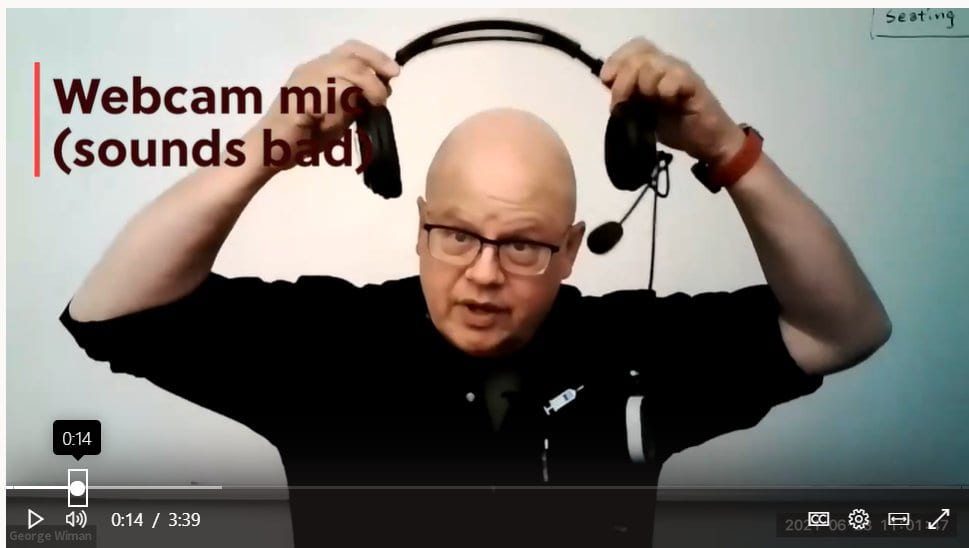
Someone asked me what I learned, as a technical support person, from the covid experience. The answer is; many things but this was the most satisfying:
When covid lockdown forced our whole faculty into remote instruction, many were profoundly uncomfortable in that space. But with years of experience, they were comfortable teaching in physical space. The difference between physical and virtual space, then, seemed like a logical starting point.
As sensory and acting beings, we spend years perceiving the physical world, building a conceptual model of it, then learning to act upon and within it at an intuitive level. Our models are built on a certain level of perceptual fidelity that depends on variables such as our vision, our hearing, touch, feedback time, and more.
Pushed from the classroom, suddenly our faculty found themselves interacting with students exclusively through the media of a tiny camera, poor microphone, tinny speakers, and no document camera, plus the unfamiliarity of video file and permissions management, and an LMS which is not universally popular.
Contrary to the impression of technology in action, it is as if they’d been exiled to a remote island, with their students far away. They were acting in an incomplete model of the virual space, built on weak perceptual fidelity.
I designed aids such as webcam-based document cameras, camera and lighting mounts, and gave countless Zoom counseling sessions where we made improvements in lighting, sound, and framing. Our faculty adapted, many commenting that they felt their confidence had developed along with their technique.
That adaptation now stands as part of their tool box. Remote instruction is no longer a future possibility they read about in journals: it is something they have done and are still doing. But how can we help with such adaptations?
People can adapt to virtuality the same way they do to physical space; by perceiving it clearly, conceptualizing how it works, and building intuitive responses to it. In virtuality there are technological, conceptual, and intuitive components which must align for the sense of “meeting” to occur. We support folk help our clients build intuitive responses by improving the perceptual experience and thinking deeply about the conceptual models.